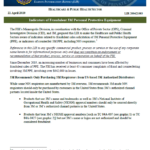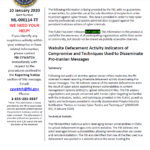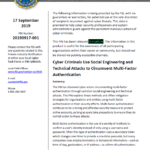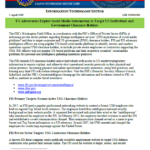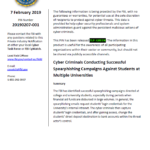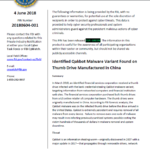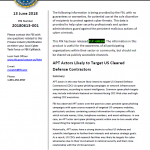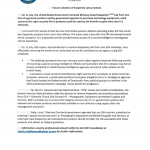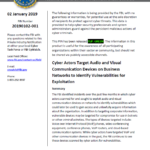
The FBI identified incidents over the past few months in which cyber actors scanned for and sought to exploit audio and visual communication devices on networks to identify vulnerabilities which could later be used to gain access and unlawfully acquire information about the organization. In addition to targeting corporate information, vulnerable devices may be targeted for compromise for use in botnets or other criminal activities. The types of devices targeted include: Voice over Internet Protocol (VoIP) phones, video conferencing equipment, conference phones, VoIP routers, and cloud-based communication systems. While cyber actors have targeted VoIP and other communication devices in the past, the FBI continues to see these devices scanned by cyber actors for vulnerabilities.
Read more →
